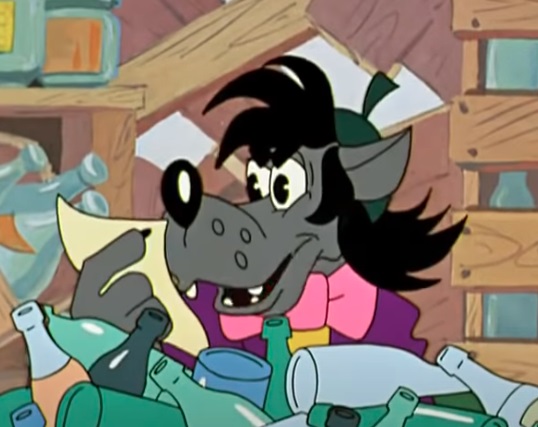An editor-in-chief of an influential scientific journal has received a text about wolves with the following introductory definition:
The wolf is a large predator or a carnivore i.e. it feeds on hoofed animals but also on rodents and insectivores. It is native to Europe, Asia and North America. The wolf lives in families in which the alpha male and alpha female are the most important. Wolves mark their territory by scent and howling.
My goodness, he thought. It runs foul of all our guidelines! So he replied – politely – to the author:
We would like very much to publish your text. Sadly, what you have submitted is in violation of our community guidelines. As soon as you make your text conform to them, we will be more than willing to accept it. Find attached the guidelines. With best regards.
The author opened the guidelines and began reading.

Well, Just You Wait! (Russian: Ну, погоди!) Soviet cartoon.
Our community guidelines lay emphasis on inclusive language and aim at avoiding terms that establish hierarchy, terms that discriminate against any species of animals, that are prejudiced against their biological roles, words that might incite hatred or be perceived as judgemental. We sincerely hope that you not only understand our policy but also wholeheartedly identify with it.
The author felt a bit perplexed. He was ready to adjust the text to any requirements. After all he needed to gather points for publications and increase his citation frequency and what not. He also received a handsome grant to carry out his research and examinations. Yet, the author was in trouble. He really did not know what he should change in his text. He strongly identified with people who prefer inclusive language; he despised hierarchy and never discriminated against any species of animals or was ever prejudiced against their biological roles. Needless to say, he hated hate speech with intense hate. Feeling at his tether’s end, he applied to the editor-in-chief:
Dear Editor-in-Chief, would you be so kind as to have one of your proofreaders work on my text so as to make it comply with the requirements? I am ready to cover all the costs involved. With best regards, Author.
The editor-in-chief mumbled something in his irritation, but then he needed to keep the constant flow of incoming texts or else his journal might incur losses and be deprived of financial support. Willy-nilly he assigned the task to one of his younger colleagues who in due time elaborated on the definition on the wolf and sent the following proof back to the Author:
The wolf brother of the domestic dog is a large predator animal or a carnivore that needs proteins to survive i.e. it feeds on hoofed animals but also on rodents and insectivores. It is native to currently lives in Europe, Asia and North America and builds families communities in which the alpha members alternately adopt male and alpha female roles are the most important. Wolves Brothers of the domestic dog mark their signal the territory that they have migrated to by lovely scent and howling friendly greetings.

Well, Just You Wait! (Russian: Ну, погоди!) Soviet cartoon.




